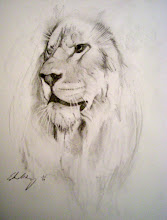Rosh Hashanah (Hebrew: רֹאשׁ הַשָּׁנָה, literally "head of the year") is the Jewish New Year. The Biblical name for this holiday is Yom Teruah, which means shouting/raising a noise, or the Feast of Trumpets. It is the first of the High Holy Days or, Days of Awe, which usually occur in the early autumn of the Northern Hemisphere. Rosh Hashanah is a two-day celebration, which begins on the first day of Tishrei. Rosh Hashanah customs include sounding the shofar (a hollowed-out ram's horn) and eating symbolic foods such as apples dipped in honey to evoke a "sweet new year".
The central observance of Rosh Hashanah is the sounding of the shofar, the ram’s horn, which also represents the trumpet blast of a people’s coronation of their King. The cry of the shofar is also a call to repentance, for Rosh Hashanah is also the anniversary of man's first sin and his repentance, and serves as the first of the “Ten Days of Repentance” which culminate in Yom Kippur, the Day of Atonement. Another significance of the shofar is to recall the Binding of Isaac which also occurred on Rosh Hashanah, in which a ram took Isaac’s place as an offering to God; we evoke Abraham’s readiness to sacrifice his son, and plead that the merit of his deed should stand by us as we pray for a year of life, health and prosperity. Altogether, we listen to one hundred shofar blasts over the course of the Rosh Hashanah services.
L'shanah tovah, a sweet and healthy New Year!
(Tonight @ sundown, 5776)
Post script: although I posted the same words last year, the Feast of Trumpets is the same from generation to generation, hence, it is not necessary to change a thing from this post!
















No comments:
Post a Comment